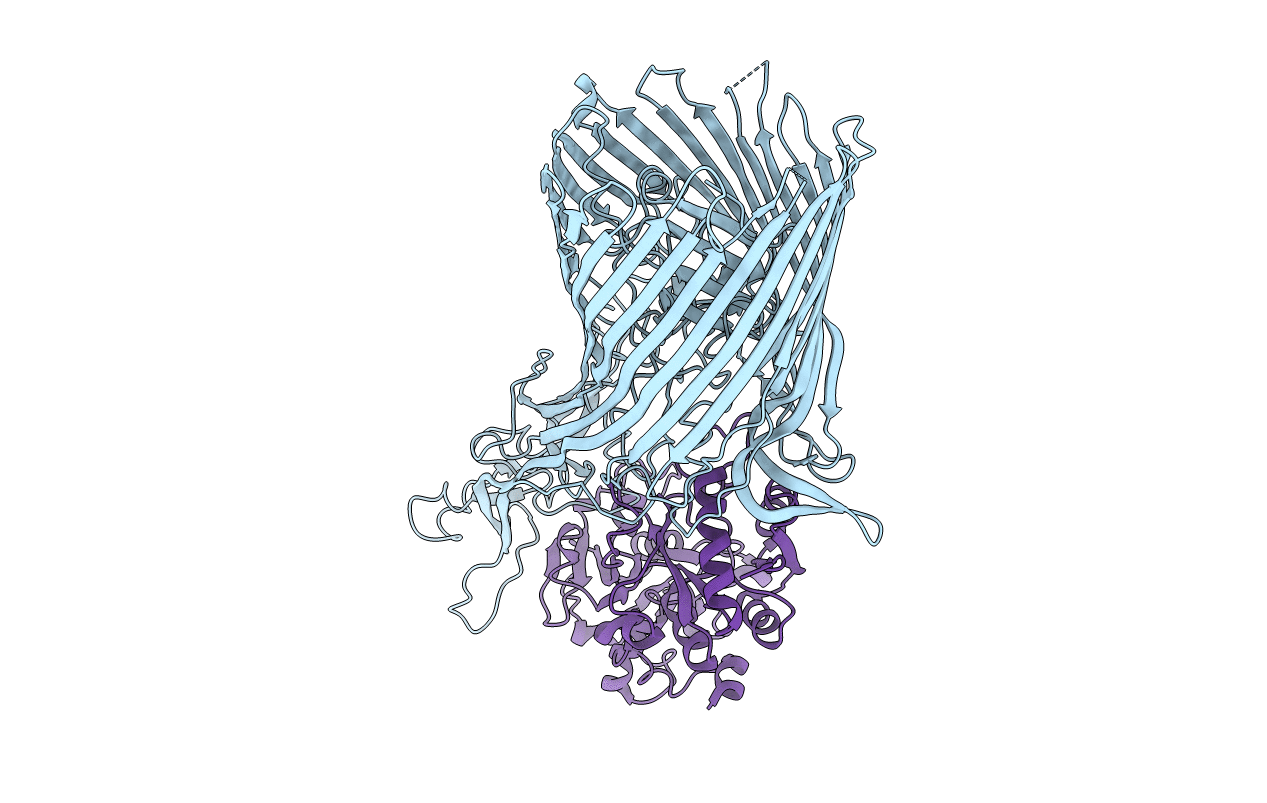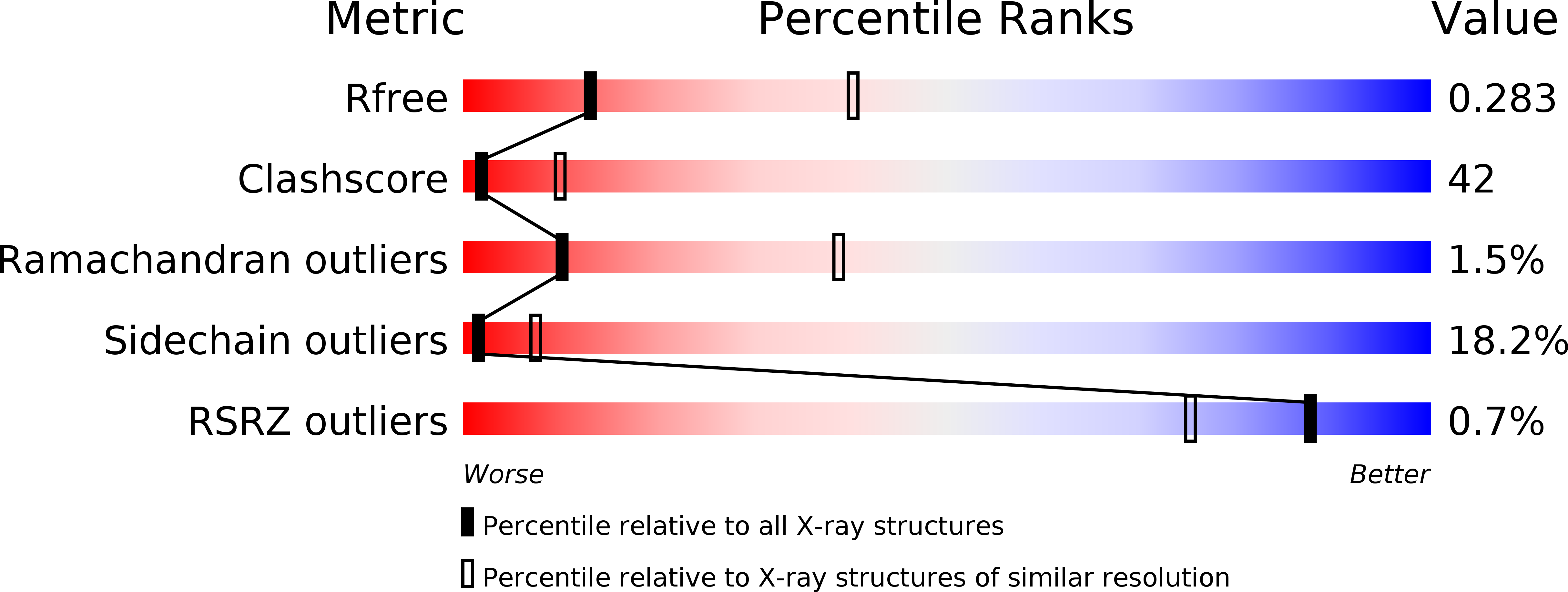
Deposition Date
2011-12-22
Release Date
2012-02-15
Last Version Date
2024-11-06
Entry Detail
PDB ID:
3V89
Keywords:
Title:
The crystal structure of transferrin binding protein A (TbpA) from Neisseria meningitidis serogroup B in complex with the C-lobe of human transferrin
Biological Source:
Source Organism(s):
Neisseria meningitidis serogroup B (Taxon ID: 491)
Homo sapiens (Taxon ID: 9606)
Homo sapiens (Taxon ID: 9606)
Expression System(s):
Method Details:
Experimental Method:
Resolution:
3.10 Å
R-Value Free:
0.28
R-Value Work:
0.22
R-Value Observed:
0.22
Space Group:
P 1 21 1


